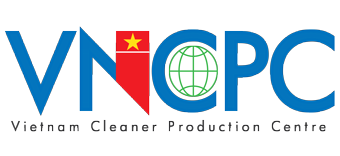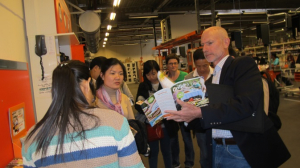VNCPC participated in the 11th Asia Pacific Roundtable for Sustainable Consumption and Production (APRSCP)
In light of the current global framework, the 11th APRSCP “Paving the Way for the Future We Want” held in Bangkok, Thailand continued engaging multi-stakeholders in developing and implementing innovative policy solutions, up-scaling technology and knowledge benchmarking, approaches and instruments towards the development and implementation programmes on SCP. This event attracted about 300 participants, including governmental officials, researchers, international and local NGO experts, students and the press.
During the 19th – 20th May 2014 in Bangkok, Thailand, the 11th APRSCP has provided a platform for multi-stakeholders from Asia and the Pacific to come together to:
– Promote best practices, programs, local initiatives and lessons learned on SCP related projects in the region.
– Identify synergies and build cooperation to engage actively in the development and implementation of the 10-Year Framework of Programmes (10YFP) on SCP Patterns.
– Enhance discussions on Paving the Way for the Future We Want in the Region by sharing experiences and lessons learned in scaling up existing and new SCP technologies, strategies, tools and approaches through re4search and information awareness, capacity building, financing, and monitoring and evaluation.
The roundtable has had 2 plenary sessions. The 1st plenary session focused on Public – Private Regional Policies, Initiatives and Cooperation toward SCP and Green Growth where speakers and participants shared regional, national and local best practices, programs, initiatives and lessons learned on SCP related projects in Asia and the Pacific region. The 2nd plenary session discussed SCP Regional Program/Activities particularly the main outcomes and follow up of Rio+20 related to SCP such as identifying synergies and building cooperation to engage actively in the development and implementation of the 10YFP in the region.
The roundtable sessions were classified based on 5 priority areas on SCP, including:
– Roundtable 1: SCP in planning and implementation, covering the following topics: Bringing SCP to the SDGs (sustainable development goals) – for government and international cooperation; The business and poverty eradication cases for SCP; Life-Cycle Thinking and Systems Approach for SCP.
– Round table 2: Mainstreaming SCP in priority sectors, covering the following topics: Sustainable Agriculture and food systems; Green building design and materials for sustainable cities; Urban Environmental Planning and Resource Management approaches, technologies for Sustainable Cities.
– Roundtable 3: Sustainable Consumption – Lifestyles and Education, covering the following topics: Sustainable Public Procurement; Harmonization of Standards and Eco-labeling; Sustainable Lifestyle and Education: Supporting Sustainable Consumer Behavior.
– Roundtable 4: SCP progress – for business and policy makers, covering the following topics: Adoption and Integration of Corporate Sustainable Reporting and Standards in relation to SCP; Eco Innovation: sustainability at the core of the business strategy; SCP Indicators.
– Roundtable 5: Resource Efficient, Cleaner and Safer Production, covering the following topics: Green Industry, from Policy to Practices; Improving Resource and Energy Efficiency through Supply Chain Management: Lessons Learnt, Opportunities, and Challenges; From “Waste-to-Wealth” to “Upcycle Product Standard”; Cases from RECP.
Two SWITCH-Asia projects, including the SUPA project of which VNCPC is a lead partner and GetGreen Vietnam project of which VNCPC is one of the three partners, participated in the Roundtable. Especially, Mr. Le Xuan Thinh, SUPA coordinator, delivered a presentation on “Establishing a Sustainable Pangasius Supply Chain in Vietnam” in one of the roundtable sessions.
Next to the 11th APRSCP, the SWITCH-Asia Network Facility also held a workshop on “Policy Advocacy for Sustainable Agriculture and Food Systems in Asia”. About 20 people from SWITCH-Asia grant projects (including SUPA and GetGreen), the Network Facility, agriculture experts, UNEP Policy Support Component and other interested stakeholders attended this thematic workshop. This was a chance for in-depth discussion on how to improve the projects’ policy advocacy strategies and for identification of country and sector specific agriculture and food priority issues. The workshop went fruitfully and productively, resulted in combining presentations and input for the SWITCH-Asia sustainable agriculture policy brief.
More information about the 11th APRSCP available at: http://www.aprscp.net/11th-APRSCP/index.html
Admin VNCPC






